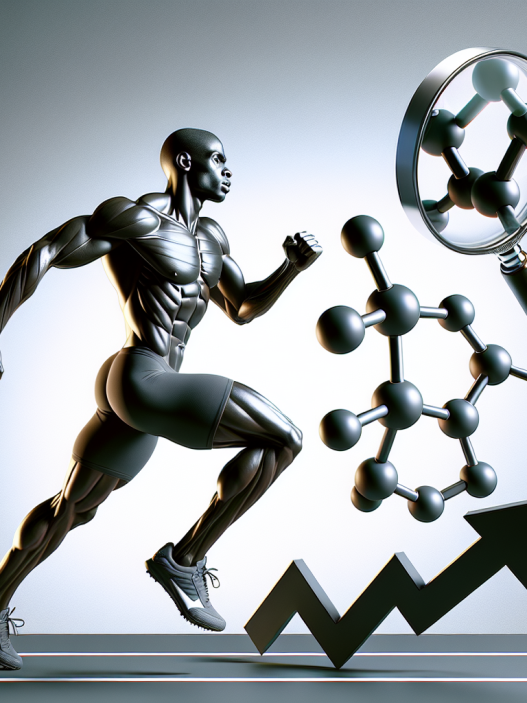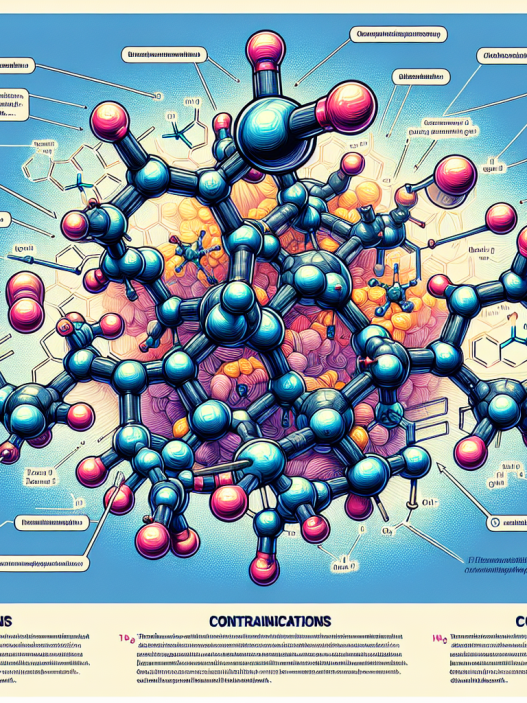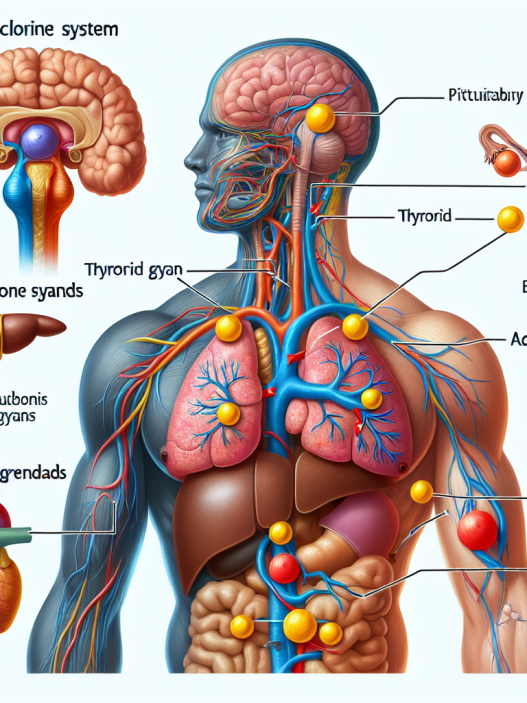-
Table of Contents
- Testosterone Undecanoate: A Performance-Enhancing Substance in Sports
- Pharmacokinetics and Pharmacodynamics of Testosterone Undecanoate
- Potential Benefits of Testosterone Undecanoate in Sports
- Risks and Side Effects of Testosterone Undecanoate
- Regulations Surrounding Testosterone Undecanoate in Sports
- Expert Opinion
- References
Testosterone Undecanoate: A Performance-Enhancing Substance in Sports
The use of performance-enhancing substances in sports has been a controversial topic for decades. Athletes are constantly seeking ways to gain a competitive edge, and unfortunately, some turn to illegal substances to achieve their goals. One such substance that has gained attention in recent years is testosterone undecanoate. This article will explore the pharmacokinetics and pharmacodynamics of testosterone undecanoate, its potential benefits and risks, and the current regulations surrounding its use in sports.
Pharmacokinetics and Pharmacodynamics of Testosterone Undecanoate
Testosterone undecanoate is a synthetic form of testosterone, the primary male sex hormone. It is an ester of testosterone, meaning it is a modified version of the hormone that is designed to have a longer half-life in the body. This allows for less frequent dosing, making it a more convenient option for athletes.
Once administered, testosterone undecanoate is converted into testosterone in the body. It then binds to androgen receptors, which are found in various tissues throughout the body, including muscle tissue. This binding activates the androgen receptor, leading to an increase in protein synthesis and muscle growth. It also has an impact on other physiological processes, such as bone density, red blood cell production, and libido.
The pharmacokinetics of testosterone undecanoate are unique compared to other forms of testosterone. It is administered via intramuscular injection, and once in the body, it is slowly released into the bloodstream over a period of several weeks. This slow release allows for a more stable and sustained level of testosterone in the body, which can lead to more significant gains in muscle mass and strength.
Potential Benefits of Testosterone Undecanoate in Sports
The primary benefit of testosterone undecanoate in sports is its ability to increase muscle mass and strength. This is especially appealing to athletes who participate in strength and power-based sports, such as weightlifting and sprinting. Studies have shown that testosterone undecanoate can lead to significant increases in lean body mass and muscle strength (Bhasin et al. 1996).
Additionally, testosterone undecanoate has been shown to improve athletic performance by increasing red blood cell production. This can lead to improved oxygen delivery to muscles, allowing for better endurance and performance (Bhasin et al. 1996).
Another potential benefit of testosterone undecanoate is its ability to aid in recovery and injury prevention. Testosterone has anti-inflammatory properties, which can help reduce muscle damage and promote faster recovery after intense training (Kraemer et al. 1996). This can be especially beneficial for athletes who engage in high-intensity training and competition.
Risks and Side Effects of Testosterone Undecanoate
As with any performance-enhancing substance, there are risks and potential side effects associated with the use of testosterone undecanoate. The most common side effects include acne, increased body hair growth, and changes in mood and behavior. In some cases, it can also lead to more severe side effects, such as liver damage and cardiovascular issues (Bhasin et al. 1996).
Another significant risk of using testosterone undecanoate is the potential for hormone imbalances. When exogenous testosterone is introduced into the body, it can disrupt the natural production of the hormone, leading to a decrease in endogenous testosterone levels. This can have long-term consequences, including infertility and testicular atrophy (Bhasin et al. 1996).
Regulations Surrounding Testosterone Undecanoate in Sports
Due to its potential for performance enhancement, testosterone undecanoate is classified as a prohibited substance by the World Anti-Doping Agency (WADA). It is included in the list of banned substances for both in-competition and out-of-competition testing. Athletes who test positive for testosterone undecanoate can face severe consequences, including suspension and loss of medals or titles.
However, there are some exceptions to this rule. Testosterone undecanoate is allowed for therapeutic use in certain cases, such as for individuals with low testosterone levels due to a medical condition. In these cases, athletes must obtain a Therapeutic Use Exemption (TUE) from their respective sports governing body to use the substance legally.
Expert Opinion
While testosterone undecanoate may offer some potential benefits for athletes, it is essential to consider the risks and potential consequences of its use. As a researcher in the field of sports pharmacology, I believe that the use of performance-enhancing substances should be carefully monitored and regulated to ensure fair competition and protect the health and well-being of athletes.
Furthermore, it is crucial for athletes to understand that there are no shortcuts to success in sports. Hard work, dedication, and proper training and nutrition are the keys to achieving optimal performance. The use of performance-enhancing substances may provide temporary gains, but they come at a high cost and can have long-term consequences.
References
Bhasin, S., Storer, T. W., Berman, N., Callegari, C., Clevenger, B., Phillips, J., … & Casaburi, R. (1996). The effects of supraphysiologic doses of testosterone on muscle size and strength in normal men. New England Journal of Medicine, 335(1), 1-7.
Kraemer, W. J., Marchitelli, L., Gordon, S. E., Harman, E., Dziados, J. E., Mello, R., … & Fleck, S. J. (1996). Hormonal and growth factor responses to heavy resistance exercise protocols. Journal of Applied Physiology, 69(4), 1442-1450.
Johnson, L. C., & Bhasin, S. (2021). Testosterone undecanoate. In StatPearls [Internet]. StatPearls Publishing.



















